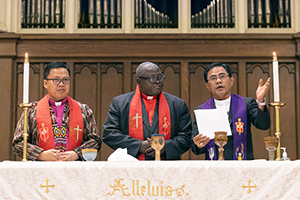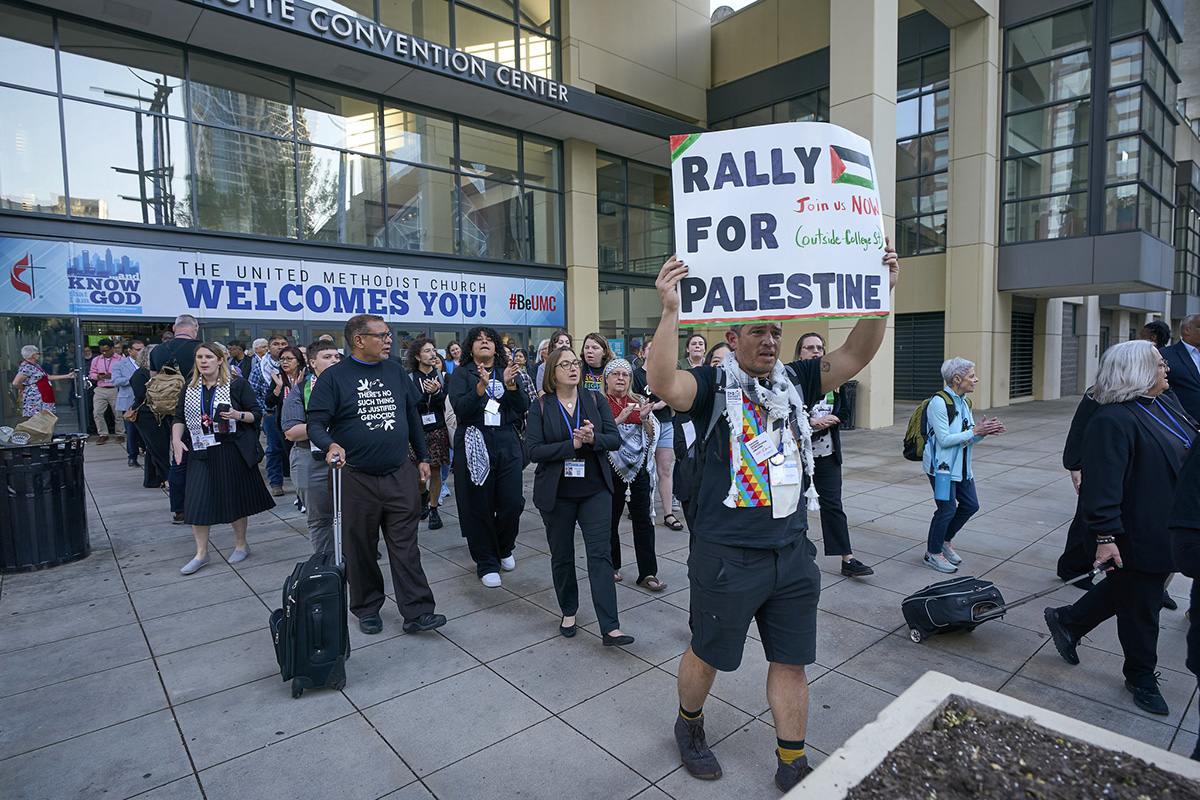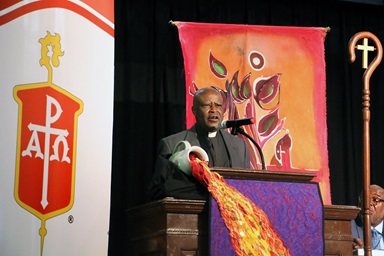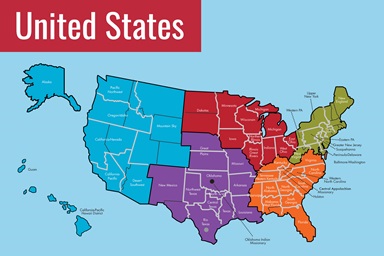Key points:
- Sponsored by United Methodist Kairos Response, the rally brought together more than 100 United Methodist delegates and observers — along with at least six bishops — to hear from a variety of speakers and sing hymns in solidarity.
- Kairos Response is involved with several petitions being discussed by delegates at the General Conference in Charlotte, including opposition to continued Israeli occupation of Gaza and the West Bank and calls for an end to the detention and incarceration of children.
- United Methodists who attended the rally said the church can’t remain silent when people are suffering.
While pro-Palestinian rallies are happening across the U.S., United Methodists at General Conference had their chance to gather in a peaceful show of support on the evening of April 25.
Sponsored by United Methodist Kairos Response, the rally brought together more than 100 United Methodist delegates and observers — along with at least six bishops — to hear from a variety of speakers and sing hymns in solidarity.
Theresa Basile of United Methodist Kairos Response said she was glad to call attention to Palestinian-related petitions submitted to General Conference.
“It’s hard to get people to do this,” Basile said while gesturing to those who had delayed their dinner plans to listen to speeches.
The conflict between Israelis and Palestinian continues to grab headlines. On April 24, President Biden signed a bill that provides roughly $26 billion worth of new U.S. military aid to Israel, currently at war with Hamas in Gaza. It also includes humanitarian aid for Gaza In March, the United Methodist Council of Bishops called for a ceasefire in the region. The United Methodist Church has opposed Israel’s occupation of Palestinian lands since 1976.
Kairos Response is involved with several petitions being discussed by delegates at this General Conference, including opposition to continued Israeli occupation of Gaza and the West Bank, calls for an end to detention and incarceration of children, protecting the right to peacefully address injustice through economic means such as boycotts, and calling on all parties to honor resolutions made by the United Nations.
Above all, the group encourages United Methodist members and congregations to work for a lasting peace in the Holy Land.
“We hope that the church would not invest in companies that are harming the Palestinians,” said Basile, who is from the California-Pacific Conference. “That’s something Wespath would oppose. And we want to ensure that American tax dollars are not being used to support the detention of children. There is a generation growing up in fear.”

Filipino Deaconess Rio Anne Dizon, a General Conference volunteer who attended the rally, said she was concerned about the innocent victims of the war.
“My heart goes to the children who are suffering the most despite their innocence,” she said. “They are the hope and the future. They deserve a chance to live, and they, too, have space in God’s table.”
Khalid Hijazi, a Palestinian, mentioned the Indigenous peoples who had been removed from the land that the city of Charlotte now rests on and said his people “have their own Trail of Tears.”
“We were forced off our land and stranded in segregated areas,” Hijazi told the crowd. “Israel has declared total war against our people and is bombing Gaza into oblivion.”
Dov Baum, an Israeli who formed the organization Apartheid-Free Communities, urged the crowd to help stem the flow of arms to Israel. “I’m deeply ashamed to be Israeli,” she said. “There are 12 million people who live between the (Jordan) River and the sea — 6 million Israelis and 6 million Palestinians. But the laws are different for one group over another.”

General Conference photos
A petition to U.S. government leaders circulated among the crowd calls for an immediate ceasefire, release of all Israeli hostages and renewal of funding to the United Nations Relief Agency.
Retired Bishop Grant Hagiya and Héctor A. Burgos-Núñez were among the episcopal leaders who attended the rally. Both men said the church must speak out when people are suffering.
Hagiya, who is Japanese American, shared how his family was incarcerated in concentration camps during World War II.
“Although my parents were native Californians and U.S, citizens, their rights were violated, and they lost everything during this period,” he said. “Anyone who has experienced oppression and injustice has the moral obligation to stand up with others who are experiencing that right now. We cannot remain silent.”
Burgos-Núñez, who leads the Upper New York Conference, said, “The church has to be present, visible and tangible where there is suffering, where there is injustice, where equity has been lost.”
Subscribe to our
e-newsletter
Thomas Kemper, a consultant for Wespath’s Central Conference Pensions program and former top executive of the United Methodist Board of Global Ministries, said he returned two weeks ago from a visit to the occupied West Bank.
“I joined the rally as our Christian sisters and brothers in Palestine have called us to cry out for them as their lives are threatened and their future is being destroyed. … There needs to be a future in peace for both peoples: Israelis and Palestinians.
“To see Methodists standing up for it warmed my heart. As we Methodist like to say: All means all and that has to include full rights and a future in peace and dignity for Palestinians, too.”
The Rev. Jorge Domingues of the California-Nevada Conference said it’s important for United Methodists to denounce what is happening in the Middle East.
“Our church has always maintained a supportive presence, both with the Christian and Muslim communities of the people of Palestine. At this time, it is important to show the world that we are aware that there is a genocide in Gaza and that this is against our values as United Methodists.
“To be in this rally is to be in solidarity with the Israelis and Palestinians who are suffering the consequences of this genocidal war that must not continue.”
The Rev. Lyssette Perez of the Greater New Jersey Conference said it’s important for minorities and the most marginalized sectors to “unite in a common fight to have a greater impact on a global level.”
“That is why in this rally we are together, people of all races, of all ethnic groups from the different countries represented at this conference, because it is a big problem and a complex conflict,” she said. “We must always advocate for peace, but with justice.”
Caldwell is freelance journalist in the Western North Carolina Conference. The Rev. Gustavo Vasquez and Gladys P. Mangiduyos of UM News contributed to this report.
News media contact: Julie Dwyer at (615) 742-5470 or newsdesk@umnews.org. To read more United Methodist news, subscribe to the free daily or weekly Digests.
Rally for Palestine




